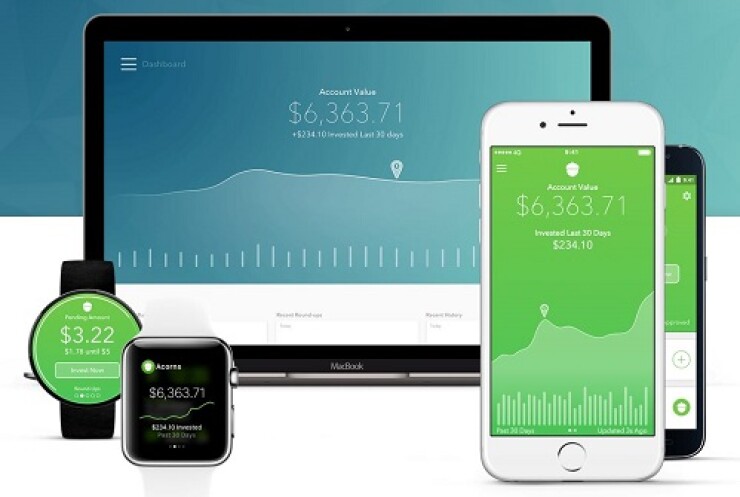
In the digital realm of wealth management, an established tool to attract millennial investors is the freebie.
The fintech startup Acorns, which rounds up debit and credit card transactions and deposits the virtual change into investments, has made giving away investment services look easy.
In July, Acorns announced it would make its investing service free for students aged 18 to 23. Not that it had far to go -- it charges $1 per month on accounts under $5,000 and 25 basis points for accounts with $5,000 and above. There is no investment minimum.
“With Acorns, investing is simplified,” says Jeff Cruttenden, Acorn's chief operating officer, who co-founded the Newport Beach, Calif.-based startup with his father Walter. “By automatically rounding up spare change from everyday purchases, Acorns turns small amounts into healthy investments.”
That focus on simple also keeps Acorns mobile – the Acorns app is available for iOS and Android devices. Users link their debit or credit card to the app and funnel the micro-amounts into investments, rather than a savings account like some other apps.
Acorns users can currently choose from five different portfolios whose risk profiles range from conservative to aggressive.
While it is a digital brokerage, Cruttenden does not see Acorns as a typical robo-advisor, and the way the company integrates behavioral finance insights illustrates its PFM influence.
“At first, Acorns didn’t want to be pegged in the robo advisor category because we felt our service’s micro-investing infrastructure and overall approach to financial management was fundamentally different than other players in the market,” Cruttenden says.
“As the term gains popularity and each player finds its niche, we want to be known for reducing the barriers to entry and making investing simple."
ALL AGES
Cruttenden characterizes Acorns’ fee structure as “competitive.”
While a math major at Lewis & Clark College, the younger Cruttenden noticed that most of his classmates who were interested in investing couldn’t meet minimum balance requirements for most brokerages, a barrier-to-entry that spelled opportunity for Acorns’ co-founders.
Some robo-advisors have gone out of their way to proclaim that they are not targeting millennials; many say they actually target pre-retirees and retirees, which are likely to be more affluent than younger investors. However, Acorns does not shy away from its initial target demographic, Generation Y.
“Our app was initially designed to cater to a millennial cohort, although our service has proven to appeal to all ages as a way to kick-start an investment account or supplement existing investment portfolios,” Cruttenden says.
“Since launching in August 2014, 85% of our users are under the age of 30,” he adds.
Read more:





